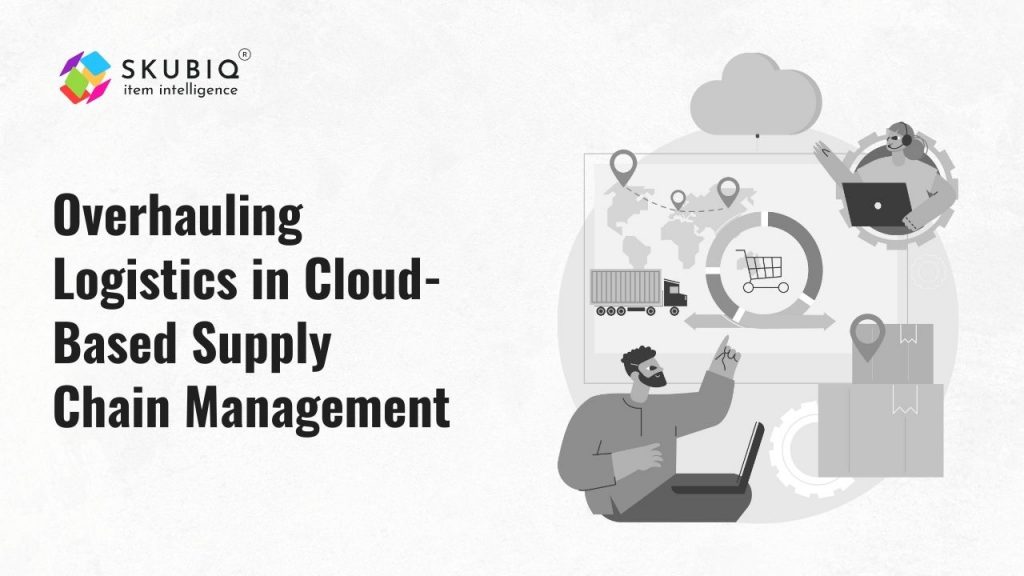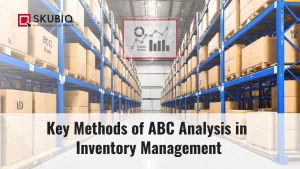In the dynamic landscape of logistics, staying ahead of the curve is imperative for businesses striving to maintain efficiency and competitiveness. The integration of cloud-based supply chain management has emerged as a game-changer, reshaping traditional logistics paradigms. Leveraging the power of cloud computing logistics, companies are experiencing enhanced agility, scalability, and cost-effectiveness in managing their operations.
The Evolution of Logistics with Cloud Technology
Reverse logistics encompasses all activities associated with the management of products after they’ve been sold and returned. This includes product returns, refurbishment, recycling, or disposal. While traditional logistics channels focus on moving products forward in the supply chain, reverse logistics deals with the movement of products in the opposite direction.
Infrastructure Management: Embracing Infrastructure as a Service (IaaS)
One of the cornerstones of cloud logistics is the adoption of Infrastructure as a Service (IaaS). This model allows organizations to outsource their IT infrastructure needs to third-party providers, eliminating the need for costly in-house hardware and maintenance. With IaaS, companies can scale their infrastructure dynamically, adjusting to fluctuating demands with ease.
Benefits of IaaS in Logistics
- Scalability: IaaS offers on-demand scalability, allowing logistics companies to expand or shrink their infrastructure according to business needs.
- Cost Efficiency: By eliminating the need for upfront hardware investments and ongoing maintenance expenses, IaaS provides a cost-effective solution for managing logistics operations.
- Reliability: Cloud providers ensure high levels of uptime and reliability, minimizing the risk of disruptions in logistics workflows.
Optimizing Inventory Management with Cloud Solutions
Efficient inventory management is pivotal in ensuring smooth logistics operations. Cloud-based inventory management systems provide real-time visibility into stock levels, orders, and shipments, empowering businesses to make data-driven decisions and minimize stockouts or overstock situations.
Key Features of Cloud Inventory Management Systems
- Real-time Updates: Cloud-based systems offer real-time synchronization of inventory data across multiple locations, enabling accurate inventory tracking and management.
- Accessibility: With cloud-based solutions, stakeholders can access inventory information from anywhere, facilitating collaboration and decision-making.
- Integration: Cloud inventory management systems seamlessly integrate with other logistics and ERP software, streamlining processes and eliminating data silos.
Enhancing Data Storage Efficiency with Cloud Storage
In the realm of logistics, efficient data storage is paramount for managing vast volumes of transactional data, shipment records, and customer information. Cloud storage solutions provide a scalable and cost-effective alternative to traditional on-premises storage systems.
Advantages of Cloud Storage in Logistics
1. Scalability
Cloud storage solutions offer virtually limitless scalability, allowing logistics companies to scale their storage capacity as needed without upfront investments.
2. Cost Efficiency
With pay-as-you-go pricing models, businesses only pay for the storage they use, making cloud storage a cost-effective option compared to maintaining on-premises servers.
3. Data Redundancy and Disaster Recovery
Cloud storage providers implement robust data redundancy and disaster recovery mechanisms, ensuring data integrity and availability even in the event of hardware failures or natural disasters.
Challenges and Considerations
While cloud-based supply chain management offers a plethora of benefits, it’s essential for businesses to address certain challenges and considerations:
1. Security
Ensuring the security of sensitive logistics data is paramount when migrating to the cloud. Implementing robust encryption, access controls, and compliance measures is crucial to safeguarding data integrity and confidentiality.
2. Integration Complexity
Integrating cloud-based logistics solutions with existing systems and processes can pose challenges. Businesses need to carefully plan and execute integration strategies to ensure seamless interoperability.
3. Vendor Lock-In
Dependency on a single cloud provider can lead to vendor lock-in, limiting flexibility and potentially increasing long-term costs. Adopting multi-cloud or hybrid cloud strategies can mitigate this risk and provide greater flexibility.
Future Outlook
As technology continues to evolve, the future of logistics holds even more promise with advancements in cloud-based supply chain management. Innovations such as artificial intelligence, machine learning, and blockchain are poised to further optimize logistics operations, driving efficiency, transparency, and sustainability across the supply chain.
In conclusion, the cloud has already revolutionized logistics, offering unparalleled agility, scalability, and cost-effectiveness. By embracing cloud-based supply chain management solutions, businesses can navigate the complexities of modern logistics with confidence, positioning themselves for success in an increasingly competitive marketplace.



